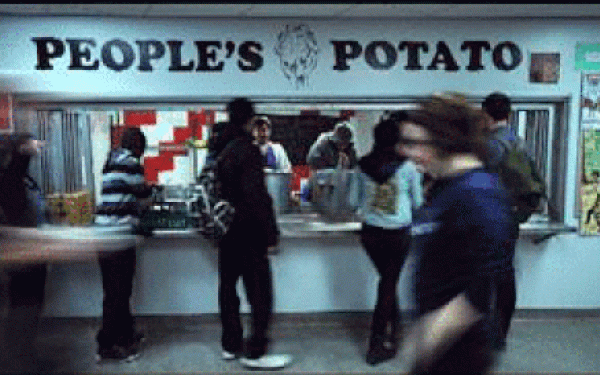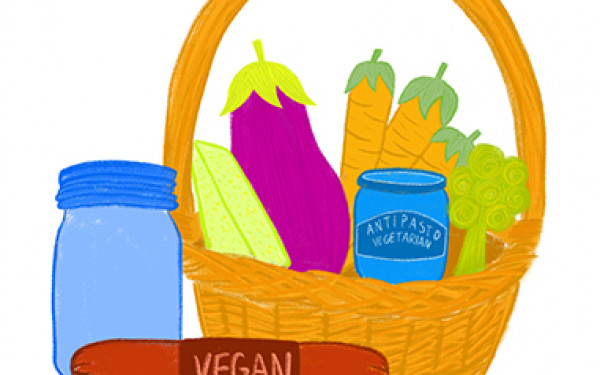Feed Your Head—and Your Body
Student-Run Farmers’ Market Brings Local Produce to ConU
Stressed-out students aren’t known for making responsible food choices, but a new student-run initiative at Concordia is set to make those choices easier.
Last Wednesday Alejandra Melian-Morse and Kasha Paprocki, with the help of six volunteers, set up the Concordia’s Farmers’ Market to bring food directly to students and staff.
“Did we mention it’s all local and organic?” Paprocki asked.
From noon to 6 p.m. every Wednesday, anyone on campus can stop by the Green Space at H-224 to pick up fresh organic fruits and vegetables, chutneys, tomato sauces, at least six different kinds of honey, fresh bread and pies.
The initiative started in a 3-credit internship course called “The Social Economy of Food” supervised by Satoshi Ikeda, a research chair and professor in the department of sociology and anthropology.
“We started by seeing what people were interested in,” said Melian-Morse. “We gave out surveys and tried to get input from students on campus.”
The first market was so successful that the sustainable foods it gathered sold out by 3 p.m. The Concordia Greenhouse had homegrown tea and sprouts for sale, the City Farm School sold produce and honey from their beehive and the rooftop garden project behind JMSB had kale and lettuce. Another group of Ikeda’s protégés, The Cooking Club, sold soups in jars.
Ikeda helped out by making smoothie samples from Concordia garden greens and selling all their produce.
Eric Laflamme from Ferme les Petites Écores said there were a lot of curious students wandering in throughout the day. His family-owned farm produces caramel, cinnamon and dark chocolate honey as well as sea-buckthorn and apple butter.
“There are a lot of things that you don’t find easily like local honey and fresh fruits and vegetables,” he said of why markets like these work.
One student, Laflamme says, was looking for what he called “parasites” found in beehives that look like spider webs.
“He was like, ‘can you bring me some, because I use it for cooking?’” Laflamme said. “It’s something it seems can be cooked. I think he’s also using it for his class.”
Ferme des Arpents Roses, Les Jardins Épicés and Multi-Ferme were also present, along with Aux Gourmandises de Soulanges bakery. Melian-Morse and Paprocki are hoping to get a wider variety of goods by bringing dairy and meat products to the market, so students can get most of their shopping done at once.
“The goal is just to encourage local and organic food, but apart from that we have no limitations in terms of meat or dairy or bugs,” said Paprocki.
There has been a farmer’s market at Concordia in past summers, said Ikeda, but never in the winter or fall.
The biggest challenge, Melian-Morse and Paprocki said, was contacting farmers. When visiting similar markets at UQAM and McGill they spoke with the farmers there and got advice from organizers on running a successful market.
Now that the UQAM and McGill markets are closed for the season, Concordia will have the only on-campus farmers’ market in Montreal.
“That was one of the reasons we wanted to pursue it at this time of year, to have something that’s going on even throughout the winter,” said Paprocki.
To overcome the lack of variety as the cold kicks in, they’ll have to coordinate with greenhouses to find a way to continue to offer fresh fruits and vegetables on campus.
Finding funding for the project is also in the works. Melian-Morse and Paprocki have applied for funding from the Sustainability Action Fund, but if the Concordia project is successful they’re hoping to become a fee-levy group, move to a bigger location and maybe hire a part-time coordinator.
The next farmer’s market is Wednesday—and there may be insects.

2_900_600_90.jpg)





